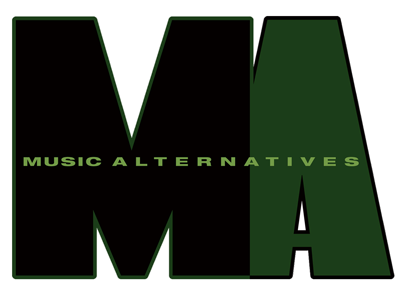Calan Mai
At first listen, Calan Mai’s “We’ve Got Love” feels like a carefree piece of folk-pop—all bright melody and major-chord strumming, soaring vocals delivered with warmth and ease. But on closer observation, the track’s intricate lyricism and detailed storytelling reveal a more heavy-hearted sensibility.
“Each verse is about a different family member and everything they were going through at the time,” says Australian singer/songwriter Jordan Lawrence, who’s created under the name Calan Mai for several years now. Noting that “We’ve Got Love” touches on his brother’s drug addiction and his father’s gambling problem, Lawrence adds that the sonic tone isn’t entirely paradoxical. “I wrote that song about the fact that even though all these things worry and upset me, I’ve never been made to feel unloved or unwanted—so in that way, I’m really very lucky,” he says.
Hailing from the Gold Coast (a small town in Queensland), Lawrence made his debut as Calan Mai with an acoustic demo of “We’ve Got Love” in 2014. With virtually no promotional push, the track soon found its way into rotation on Triple J, BBC Radio 6, and a number of college radio stations in the U.S. Having recently teamed up with producer Chris Coady (Beach House, Future Islands, Lower Dens), Calan Mai is now set to release the fully realized, more dynamically arranged version of “We’ve Got Love” as part of a selection of songs showcasing his nuanced songcraft.
Within those forthcoming tracks, Calan Mai channels the weary yet hopeful spirit of his chosen moniker (the Welsh name for a holiday held near summer solstice). “I like the idea of coming out of a time when you feel lost, and realizing that something you’ve been trying to cultivate has actually started to grow,” says Lawrence in reflecting on the concept of Calan Mai. Though subtly adorned, each song unfolds with graceful flourishes, such as the delicate horns of “XO” (a sweetly self-effacing track about the pathological need for validation) and the unearthly harmonics of “Passengers” (a stark and soulful duet with Sydney-based hip-hop artist Bea Moon). And on “Cup,” elegantly crafted drum loops meet with lilting harmonies to quietly stunning effect.
As Lawrence explains, “Cup” came to life soon after a breakup. “My girlfriend had done the dishes before she left, so I wrote this whole song centered around the fact that she had washed my cup for me,” he says. “There’s a line that says, ‘I’ve got all the water we can drink,’ which is meant to be this tongue-in-cheek comment on the ridiculousness of trying to get a person to stay with you by offering something that—at least in the Western world—is so completely given.”
Now 27, Lawrence started making music in his early teens, compelled by a Led Zeppelin-worshipping friend who’d recently learned to play guitar. “His house was about to get torn down in a few weeks, and we were hanging out there and drawing all over the walls,” Lawrence remembers. “All of a sudden it just came to me, ‘I should learn to play something too, and we can start a band.” In addition to playing in rock bands throughout his adolescence, Lawrence began penning his own material at age 15 and found his songwriting taking on a greater intensity during his college years. Soon after graduating, he started recording as Calan Mai and later moved to Manchester with a group of fellow musicians. Fueled by the breakout success of the “We’ve Got Love” demo, his two-year stint in England included such feats as sharing the stage with Will Johnson and opening for Band of Horses at Albert Hall.
Upon returning to the Gold Coast, Lawrence focused on refining his songwriting process, eventually adopting a more instinct-driven approach. “When I first started out, I’d write these walls of text that would turn into seven-minute-long songs,” he says. “The way it happens now is more automatic, where I sit with a guitar or at the piano, start working out a melody, and the words come after.” Rather than writing those words down, Lawrence prefers to hold the lyrics in his mind until the song feels fully formed. “The idea is to not ever force anything,” he says. “Instead I just slowly come back to the song, without putting any pressure on it. It all feels more truthful that way.”
Also a prose writer who completed a novel in college, Lawrence notes that authors like Kurt Vonnegut have helped to shape the emotional complexity of his songs. “What I love about Vonnegut is the bittersweet element to the humor, the idea of laughing when maybe you should be crying,” he says. And in the music of Calan Mai, his own wry yet full-hearted humor makes the more painful moments that much more poignant, ultimately bringing an unexpected solace. “The thing I’ve always looked for in music is that recognition that you’re not isolated in how you see the world,” Lawrence says. “What I want most is for people to hear these songs and think, ‘I’m not alone in what I feel, because I can hear someone else telling me they’ve felt the very same thing.’”
Facebook / Twitter / SoundCloud / YouTube / iTunes

